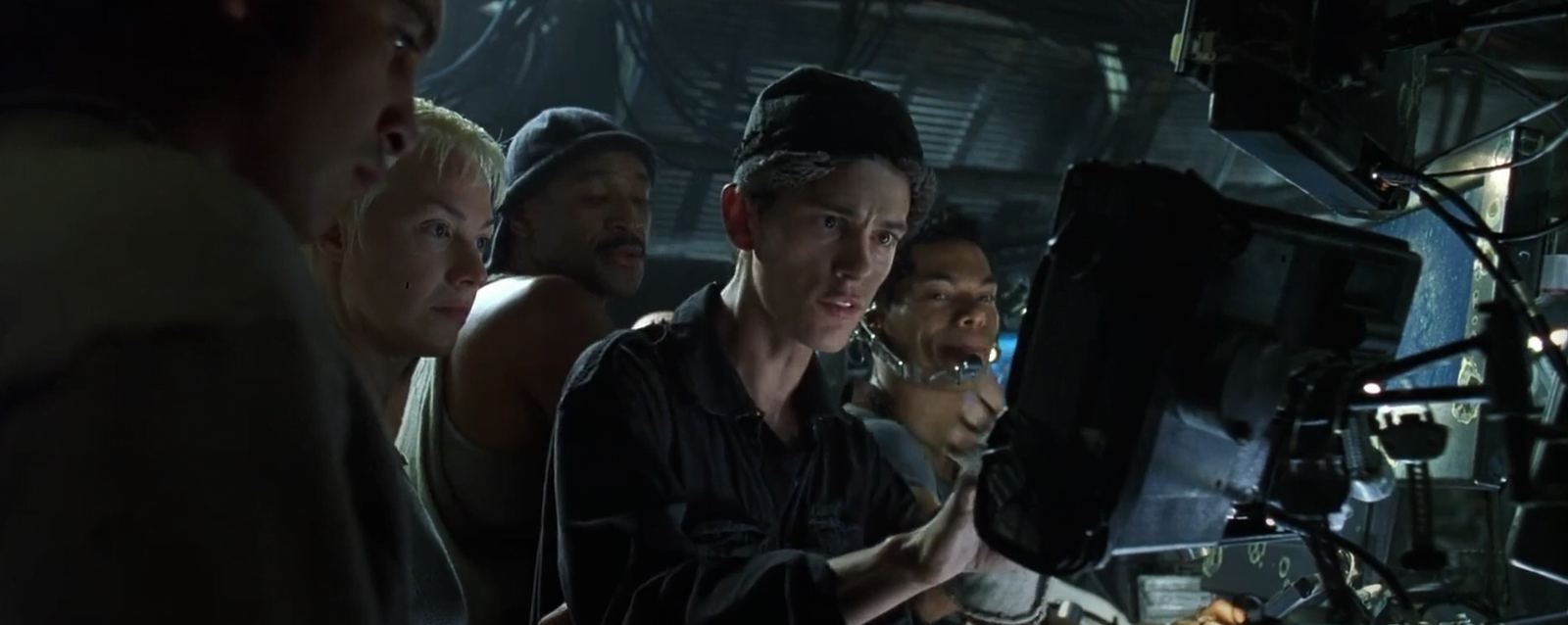The Illusion of Reality

In The Matrix, the concept of the “illusion of reality” is central to the narrative. Humans live their lives unaware that their perceived reality is actually a computer-generated simulation created by sentient machines. This simulated reality, known as the Matrix, keeps humans docile and under control, feeding off their energy while masking the true, dystopian world.
Similarly, the financial world often operates under the guise of stability and trust in traditional banking systems. Many people accept these systems without questioning their limitations or considering alternatives. Bitcoin disrupts this illusion by offering a decentralized digital currency that operates outside the control of any central authority. It exposes the vulnerabilities and limitations of traditional financial systems, highlighting issues such as inflation, currency manipulation, and lack of financial inclusion.
Just as Neo starts to question the reality presented to him, Bitcoin prompts users to reconsider their relationship with money and financial sovereignty. It challenges the status quo by demonstrating that money can exist and thrive outside the confines of traditional institutions. Like the red pill offered to Neo, Bitcoin invites individuals to awaken to a new reality where financial autonomy and transparency are not just ideals but achievable realities.
Understanding Bitcoin requires navigating through concepts like blockchain technology, decentralized consensus mechanisms, and cryptographic security. This journey of understanding can feel daunting at first, much like Neo’s initial disbelief in the Matrix. However, once individuals grasp the potential and power of Bitcoin, they often experience a profound shift in perspective, realizing they have the ability to take control of their financial destinies in ways previously unimaginable.
Just as Neo’s journey from disbelief to empowerment mirrors the process of discovering Bitcoin, both narratives challenge us to question what we accept as truth and to explore the possibilities that lie beyond conventional wisdom. By shedding light on the illusion of financial reality, Bitcoin invites us to embrace a future where financial freedom and empowerment are not just theoretical concepts but tangible outcomes of embracing decentralized technologies.
The Role of Neo and Satoshi Nakamoto

In The Matrix, Neo emerges as a reluctant hero, initially unaware of his potential to challenge the oppressive system. Similarly, Satoshi Nakamoto, the enigmatic creator of Bitcoin, released the cryptocurrency in 2008 through a whitepaper that outlined a decentralized digital currency system. Much like Neo, Satoshi’s identity remains shrouded in mystery, adding an aura of intrigue to his revolutionary creation.
Neo’s journey in The Matrix parallels Satoshi’s vision for Bitcoin. Both figures challenge existing paradigms: Neo confronts the simulated reality imposed by machines, while Satoshi confronts the centralized control of traditional financial institutions. Both aim to empower individuals by offering alternatives that prioritize transparency, decentralization, and autonomy.
Just as Neo awakens to the truth of the Matrix, Bitcoin encourages users to question the traditional banking system and embrace a new financial reality. Satoshi, like Morpheus guiding Neo, provides the tools and knowledge for users to liberate themselves from financial intermediaries and take control of their own wealth.
The parallels deepen when considering the impact of their actions. Neo’s journey inspires others to question reality and fight for freedom, while Satoshi’s creation of Bitcoin sparks a global movement toward decentralized finance and digital sovereignty. Both Neo and Satoshi symbolize the potential of individuals to reshape their worlds through courage, innovation, and a commitment to freedom from centralized control.
Their stories remind us that heroes can emerge from unexpected places, and revolutions can start with a single idea. Whether in a dystopian future or the digital frontier of finance, Neo and Satoshi Nakamoto exemplify the power of visionaries who challenge the status quo and pave the way for a more decentralized and liberated future.
Liberation through Knowledge

In The Matrix, Morpheus famously offers Neo a choice between the red pill and the blue pill. The red pill represents a harsh truth—the unsettling reality that humanity is enslaved by machines in a simulated world. The blue pill offers the comfort of ignorance, allowing Neo to remain in blissful oblivion.
Similarly, Bitcoin presents a choice that parallels this moment of decision. To truly understand Bitcoin is to delve into the complexities of blockchain technology, decentralized finance, and the philosophical underpinnings of financial sovereignty. It requires questioning the traditional banking systems and the centralized control they exert over our financial lives.
Choosing Bitcoin is akin to taking the red pill—it opens your eyes to a world where individuals can transact peer-to-peer, bypassing intermediaries and reclaiming control over their money. Bitcoiners often jokingly refer to the orange pill. It’s a journey of empowerment through knowledge, where users become their own bank, managing their wealth with cryptographic keys instead of relying on third parties.
Just as Neo grapples with the realization of his true existence outside the Matrix, Bitcoin adopters confront the reality of a financial system that can operate beyond borders and traditional limitations. This awakening is not just about financial transactions but about fundamental principles of freedom, privacy, and self-determination in the digital age.
By embracing Bitcoin, individuals join a global movement that challenges the status quo, advocating for financial transparency, censorship resistance, and inclusive access to economic opportunities. It’s a revolution built on the belief that decentralization and cryptographic trust can redefine the way we perceive and interact with money.
In essence, Bitcoin offers more than just a digital currency—it offers a paradigm shift in how we understand and engage with financial systems. It empowers individuals to participate in a decentralized economy, where knowledge is the key to liberation from the constraints of traditional banking and monetary control.
Choosing Bitcoin is not merely a financial decision; it’s a philosophical and ideological stance toward a future where financial sovereignty and personal freedom are accessible to all. Just as Neo’s journey in The Matrix transforms him from a skeptic to a believer in the power of choice and knowledge, so too does Bitcoin offer the possibility of a new reality where individuals hold the keys to their financial destinies.
Resistance and Revolution

In both The Matrix and the world of Bitcoin, resistance and revolution are central themes that resonate deeply. In The Matrix, humanity’s resistance fights against the oppressive control of machines, symbolizing the struggle for freedom and self-determination. Similarly, Bitcoin emerges as a digital rebellion against the centralized control of traditional financial systems.
Bitcoin’s decentralized nature means it operates outside the jurisdiction of governments and financial institutions, offering individuals sovereignty over their money. This decentralization is akin to the Matrix’s resistance, which operates beyond the reach of the machines’ control. Bitcoin users, developers, and advocates form a global network of resistance, pushing back against censorship, surveillance, and the monopolistic power of banks.
Just as Morpheus and his crew recruit Neo to join the fight against the machines, Bitcoin enthusiasts educate and empower others to embrace financial independence and the principles of blockchain technology. They believe in a future where financial transactions are transparent, censorship-resistant, and accessible to all, regardless of geographic location or socioeconomic status.
Moreover, like the philosophical underpinnings of The Matrix, Bitcoin challenges us to question existing power structures and envision a world where individuals have more control over their financial destinies. This resistance isn’t just about technology; it’s about ideology and the belief that decentralized systems can lead to greater fairness, transparency, and empowerment for all.
Both The Matrix and Bitcoin inspire us to resist conformity, challenge authority, and envision a future where individuals have the tools and knowledge to shape their own destinies. They remind us that true freedom often requires courage, perseverance, and a willingness to challenge the status quo. As we continue to navigate the complexities of our digital age, these stories serve as powerful metaphors for the ongoing struggle for autonomy and justice in our increasingly interconnected world.















